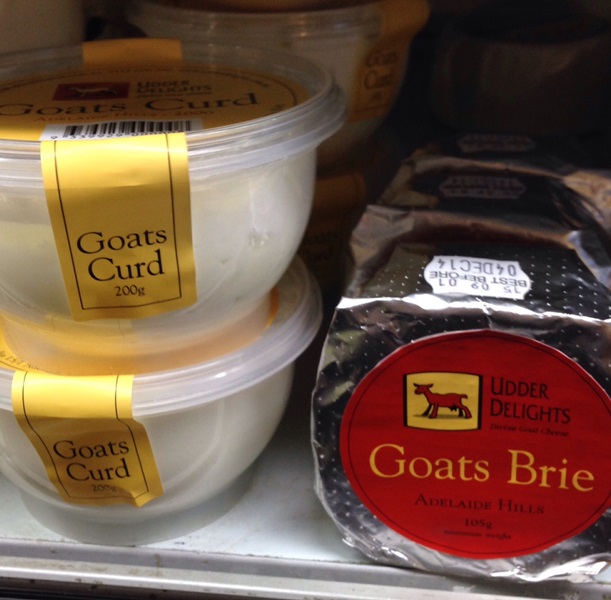- Home
- Blog
- Medical Diets
- Eat to beat milk allergy
Eat to beat milk allergy
Written by Catherine Saxelby
on Tuesday, 23 October 2012.
Tagged: allergies, dairy, guides, healthy cooking, healthy eating, milk, special diets, tips

This diet is designed for people who are unable to consume milk and dairy products at all. This may be due to allergy to cow's milk protein OR may be the result of lactose intolerance. Read on for advice on which foods to avoid and what you can substitute them with, a meal plan and how to get enough calcium.
Note: If you're after specific advice on a diet to beat lactose intolerance, click here.
Foods to avoid and what you can substitute them with
| Foods to avoid | Substitute with |
| Fresh milk, full-cream and skim | Soy milk, rice milk, oat milk |
| Powdered milk, evaporated milk, condensed milk | Desiccated coconut powder |
| Buttermilk | Soft tofu (soy bean curd) thinned down, available from health food shops |
| Yoghurt (full cream & skim) | Soft tofu |
| Ice cream | Gelato, fruit sorbets, dairy-free ices |
| Cottage cheese, ricotta & unripened cheeses | Soft tofu |
| Hard cheeses (cheddar, camembert, blue-vein, swiss, parmesan, processed, cream) | Firm tofu |
| Cream, sour cream | Coconut cream, soft tofu, tahina (sesame seed paste) |
| Butter, ghee | Milk-free margarine (Sundew, Nuttelex) |
| Commercial or home-made foods made with milk, yoghurt or cheese | Find products labelled milk-free or use soy milk or rice milk instead |
Goat's milk
Most of the goat's milk and cheese sold in Australia is consumed by people who believe they are "allergic" to ordinary cow's milk. However, only some will find any improvement on goat's milk; the remainder will still have problems, because the proteins found in goat's milk share the same immune cross-reactivity as those in cow's milk. Both cow's and goat's milk, therefore, can trigger a reaction in susceptible people.

Checking food labels
Many commercial and take-away foods contain milk, cheese, yoghurt or buttermilk and must be avoided. These include biscuits, cakes, cheese sauce, cream soups, custard, savoury dips (like French Onion Dip), fritters, junket, milk bread, milk chocolate, milkshakes, pancakes, pikelets, quiche, scones, scrambled eggs, white sauce and 'White Christmas' confectionery.
Tip:
When shopping, check ingredient labels for the following ingredients, which all mean that milk or one of its components is present:
MILK, NON-FAT MILK SOLIDS, WHEY, CASEIN, LACTOSE.
Getting enough calcium
Eliminating dairy foods as a group can lead to deficiency of calcium, an essential mineral needed for strong bones and teeth. If you are unable to consume soy milk fortified with calcium, it is wise to take a calcium supplement daily. When buying, check the amount of elemental or pure calcium contained in each tablet. Adults require 1000 milligrams of calcium a day, while children range from 700 milligrams (for toddlers) to 1,600 for teenage boys. Read my FAQ on getting enough calcium without dairy.
Milk for babies
Soy-based baby formulae are milk-free powders suitable for infants with an allergy to cow's milk or lactose intolerance (Infasoy, Prosobee, Isomil). But breast milk is the best food for babies, so check with a paediatrician or early childhood sister first, as it is important that the correct diagnosis is made before giving up breastfeeding.
Milk-free eating plan
Breakfast
- Fresh fruit or fruit juice
- Cereal or muesli with soy milk or fruit juice OR rolled oats (porridge) made with water or soy milk
- Egg, boiled, poached or scrambled without milk (optional)
- Milk-free bread, toasted or fresh, spread with milk-free margarine
- Avocado, peanut butter, yeast spread, marmalade, jam or honey
- Tea or coffee, black or with soy, oat, rice or almond milk OR glass of soy, oat rice or almond milk or juice
Lunch
- Sandwich made with milk-free bread or crispbread with
cold meat, ham, chicken, tuna, salmon, baked beans, eggs, salad
OR
- salad made with any of the above
OR
- bowl of clear vegetable or meat or pea soup (made without milk)
- Crusty bread roll spread with milk-free margarine or avocado
Piece of fresh fruit or wedge of fruit cake (milk-free)
Fruit juice, soft drink, cordial, water, tea or coffee, black or with soy milk
Dinner
- Beef, lamb, pork, chicken or fish dish
- Potato, pasta or rice
- Vegetables or salad
- Wine, water or juice
- Milk-free dessert such as fruit salad, apple crumble, baked apples, jelly, stewed fruit, apple pie or gelato
- No custard, ice cream or yoghurt
You may also be interested in...
Jemma O'Hanlon
The Good Stuff
The Boring Stuff
© 2025 Foodwatch Australia. All rights reserved
Website by Joomstore eCommerce





